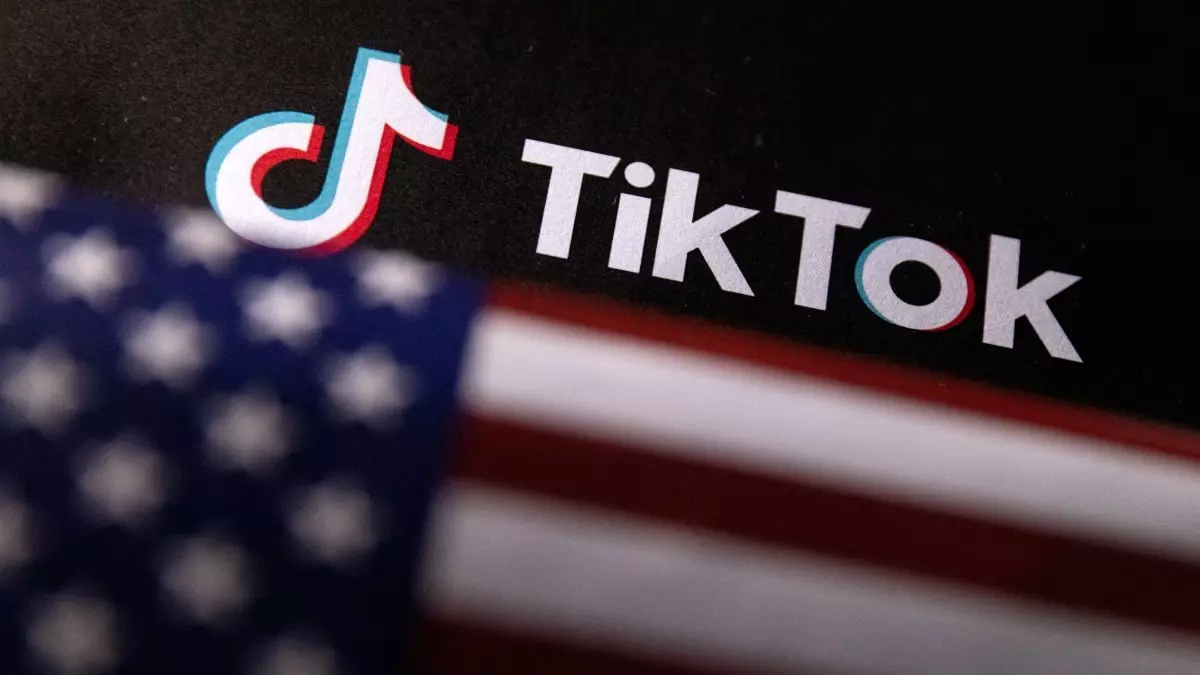In a dramatic turn of events, TikTok, the wildly popular social media application owned by the Chinese company ByteDance, made a return to the app stores of both Apple and Google last Thursday. This resurgence follows a series of tumultuous political maneuvers, especially from the Trump administration, which has been closely scrutinizing the app due to national security concerns. On the heels of a looming ban, President Trump intervened by delaying the enforcement of this ban for 75 days, facilitating TikTok’s brief yet pivotal comeback in the U.S. market. The cloud of uncertainty hung over TikTok’s future just weeks prior, as it had vanished from app stores amidst the legislative action that mandated either the sale of its U.S. assets or an outright prohibition.
The question that arises here is not just why TikTok found itself in jeopardy, but what this incident represents concerning the intersection of technology and politics in the digital age.
The suspension of TikTok’s availability in U.S. app stores was more than just a local inconvenience; it underscores the broader challenges tech giants face regarding compliance with government regulations. While President Trump’s assurances seem to have paved the way for TikTok’s re-entry into the app stores, analysts speculate that tech giants like Google and Apple were apprehensive and sought further guarantees to avoid any legal repercussions for distributing the application. Such apprehensions are indicative of the complex landscape that tech companies must navigate—balancing user demand for popular platforms like TikTok with an increasingly scrutinizing government stance on national security.
The context is imperative here. The law that President Biden signed last April stemmed from intensified concerns regarding China’s potential exploitation of technological platforms for espionage and data gathering. This national security alarm has sequentially led to an environment in which not only TikTok but various Chinese-owned applications are being examined under a microscope.
Download Statistics and Market Influence
According to data from Sensor Tower, TikTok was positioned as the second most downloaded app in the U.S. last year, boasting over 52 million downloads in 2024 alone. Notably, this figure comprises a nearly balanced split between Apple and Google, with 52 percent of the total downloads occurring through the Apple App Store and 48 percent via Google Play. These statistics reveal a compelling narrative about TikTok’s footprint in the American app landscape, showcasing its immense popularity despite regulatory threats.
However, the underlying theme is not merely TikTok’s appeal but the increasingly volatile digital marketplace where user preferences can be thwarted overnight by political developments.
Presidential declarations surrounding TikTok have implications that extend beyond mere app availability—they reflect the priorities and power dynamics within the political realm. Trump’s recent comments speculated on the possibility of extending the 75-day deadline, serving as a reminder of the ongoing uncertainty surrounding TikTok’s operational legitimacy. Meanwhile, this tumult has drawn attention from potential buyers, illustrating the commercial prospects associated with acquiring a platform that could reportedly be valued at around $50 billion.
Among those interested in TikTok’s burgeoning potential is former Los Angeles Dodgers owner Frank McCourt, among others. This interest underscores the value perceived in TikTok, irrespective of its political entanglements, suggesting that, in a world where social media continues to flourish, the intersection of entertainment and business remains robust even amidst regulatory threats.
The TikTok saga extends beyond the app itself; it compels a broader dialogue about digital sovereignty and the management of foreign-owned social media platforms in the U.S. In an era characterized by rapid technological advances and shifting geopolitical landscapes, the national security concerns tethered to platforms like TikTok reflect deeper issues related to data privacy, user security, and the role of government in moderating the digital space.
As we look ahead, the future of TikTok may be uncertain, but it undeniably serves as a pivotal case study in the ongoing evolution of technology policy, consumer digital rights, and international relations in a hyper-connected world. The decisions made in the coming months will not only determine TikTok’s fate but could also set dangerous precedents for how similar digital platforms are treated globally.

